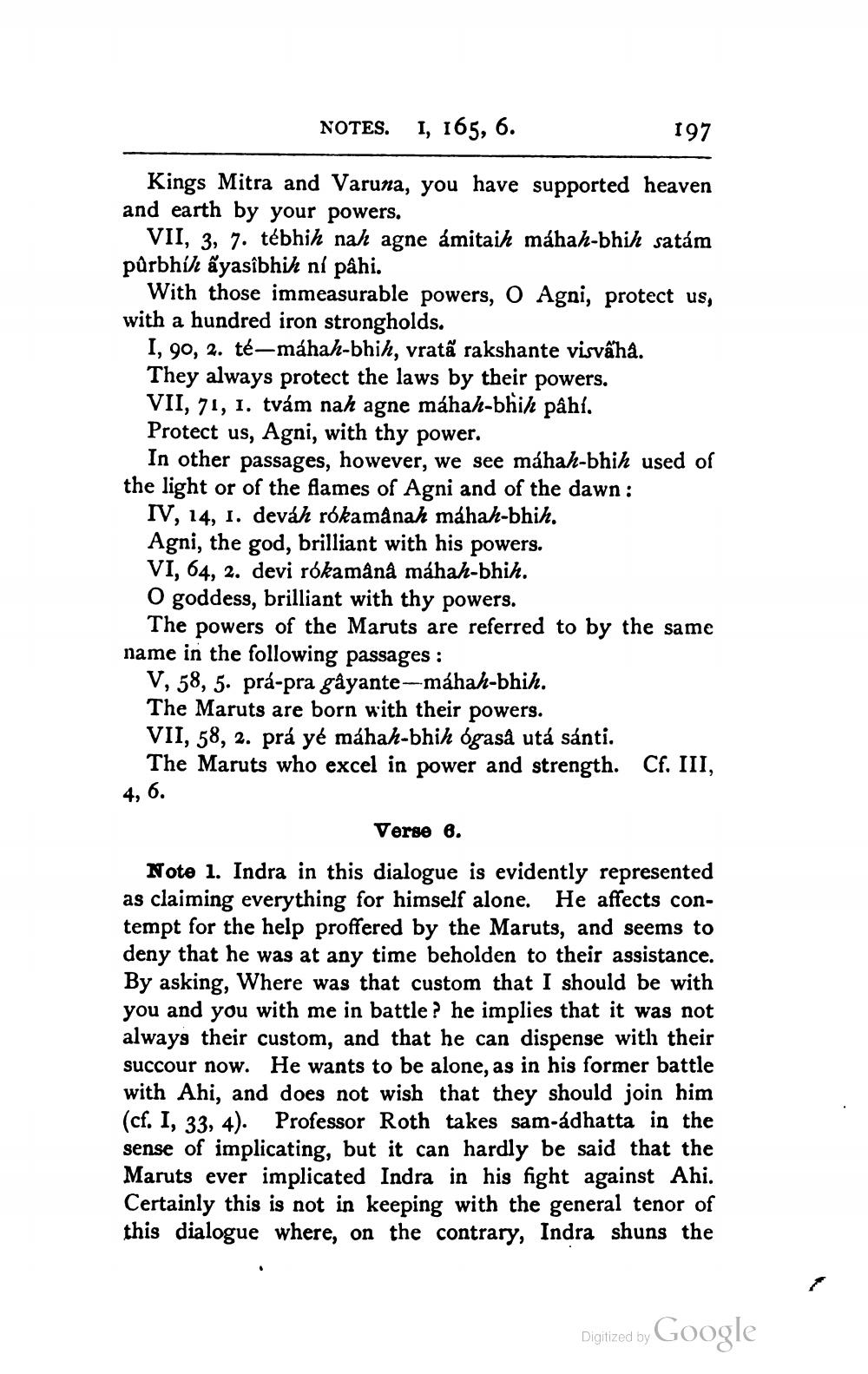________________
NOTES. I, 165, 6.
197
Kings Mitra and Varuna, you have supported heaven and earth by your powers.
VII, 3, 7. tébhih nah agne ámitaih máhah-bhih satám purbhíh ấyasîbhih ni pâhi.
With those immeasurable powers, O Agni, protect us, with a hundred iron strongholds.
I, 90, 2. té-máhah-bhih, vratã rakshante visvấhå. They always protect the laws by their powers. VII, 71, 1. tvám nah agne máhah-bhin pâhí. Protect us, Agni, with thy power.
In other passages, however, we see máhah-bhih used of the light or of the flames of Agni and of the dawn:
IV, 14, 1. deváh rókamânah máhah-bhih. Agni, the god, brilliant with his powers. VI, 64, 2. devi rókamanà máhah-bhih. O goddess, brilliant with thy powers.
The powers of the Maruts are referred to by the same name in the following passages :
V, 58, 5. pra-pra gâyante---máhah-bhih. The Maruts are born with their powers. VII, 58, 2. prá yé máhah-bhih ógaså utá sánti. The Maruts who excel in power and strength. Cf. III,
4, 6.
Verse 6. Note 1. Indra in this dialogue is evidently represented as claiming everything for himself alone. He affects contempt for the help proffered by the Maruts, and seems to deny that he was at any time beholden to their assistance. By asking, Where was that custom that I should be with you and you with me in battle? he implies that it was not always their custom, and that he can dispense with their succour now. He wants to be alone, as in his former battle with Ahi, and does not wish that they should join him (cf. I, 33, 4). Professor Roth takes sam-ádhatta in the sense of implicating, but it can hardly be said that the Maruts ever implicated Indra in his fight against Ahi. Certainly this is not in keeping with the general tenor of this dialogue where, on the contrary, Indra shuns the
Digitized by
Digized by Google




